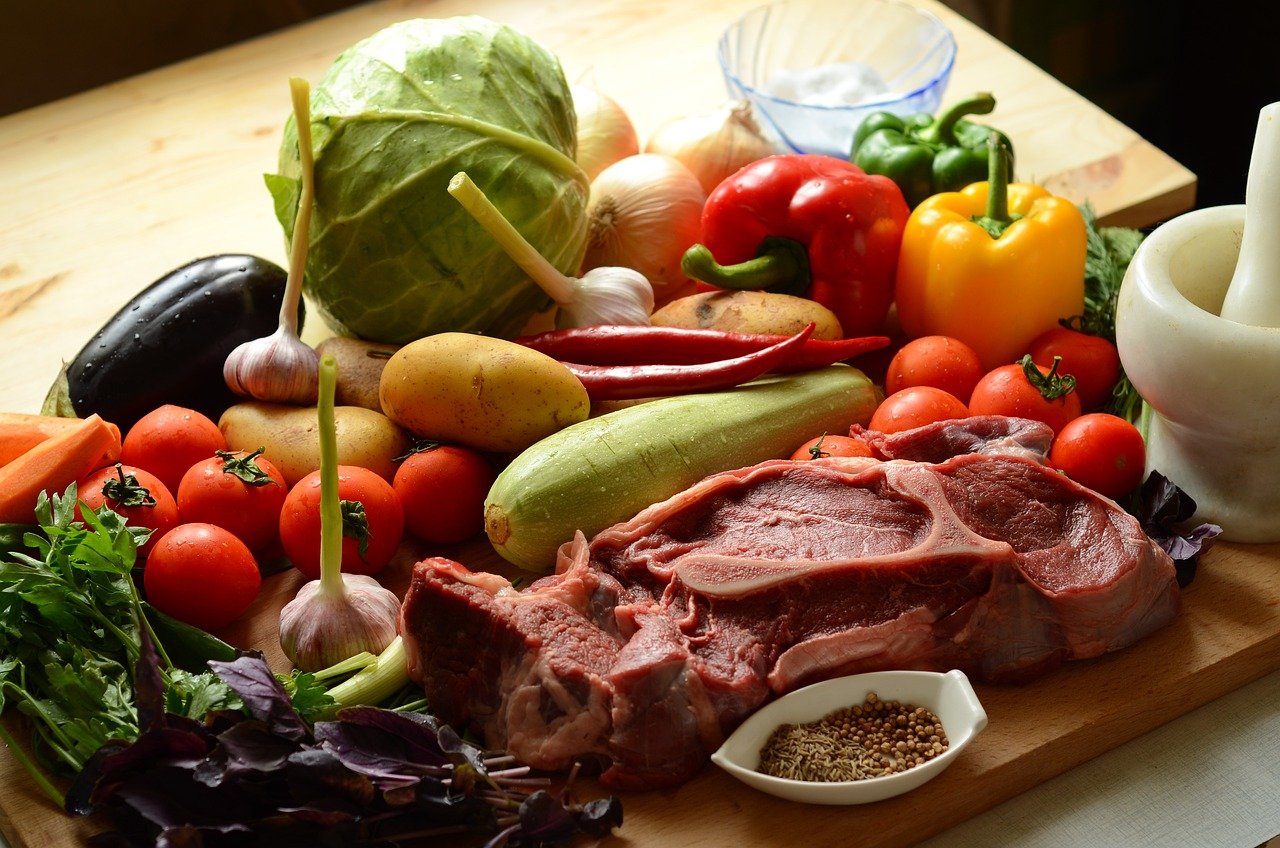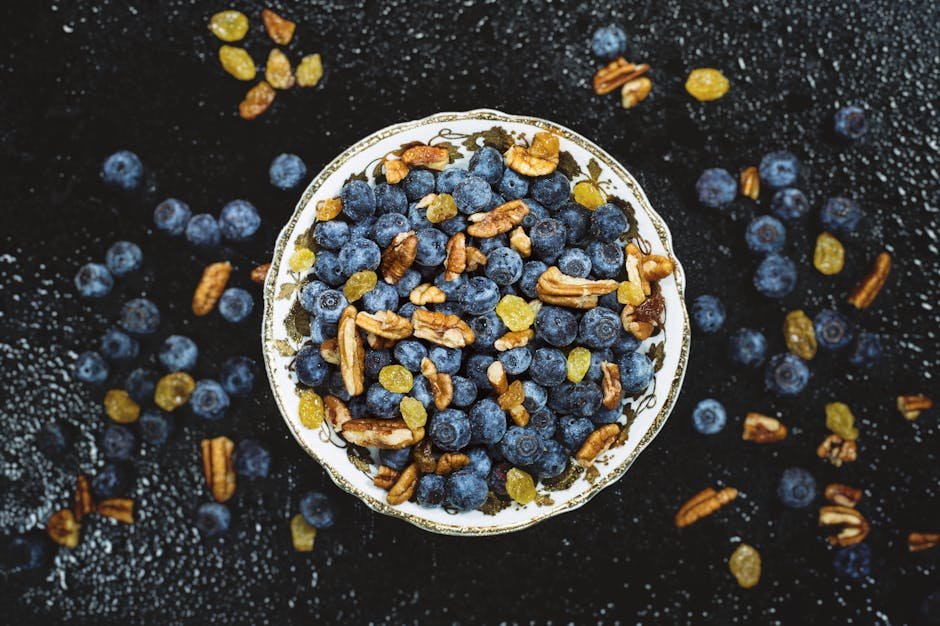Best Foods that Boost Longevity: Science-Backed Nutrition for Healthy Aging
Adopting a lifestyle that emphasizes nutrition and health benefits from foods that boost longevity isn’t just about adding years to your life—it’s about adding life to your years. Consuming the right foods can enhance your chances of enjoying a longer, healthier life by providing essential nutrients that combat age-related diseases. Discover Best Foods That Boost Longevity: Science-Backed Nutrition for Healthy Aging.
Fundamentals of Nutrition for Longevity
A balanced diet is pivotal for a long and healthy life, focusing on antioxidants to reduce inflammation and the critical role of essential nutrients. Optimizing macronutrient intake contributes significantly to health, while vitamins and minerals are vital for maintaining bodily functions. Understanding these aspects can guide you toward healthier aging.

Role of Antioxidants and Inflammation in Aging
Antioxidants such as vitamin C, vitamin E, and flavonoids play a critical role in combating oxidative stress, which is linked to aging and inflammation. They help neutralize free radicals, reducing cellular damage and potentially slowing age-related diseases. Consuming nutrient-dense foods like berries, nuts, and dark leafy greens can provide an ample supply of antioxidants. Reducing inflammation through diet might also involve limiting processed foods and refined sugars, which can exacerbate inflammatory responses. By focusing on a variety of antioxidant-rich foods, you can support your body’s defense against aging processes.
Balancing Macronutrients for Optimal Health
Achieving a balanced intake of protein, carbohydrates, and fats is essential for longevity. Protein, found in lean meats, beans, and legumes, supports muscle maintenance and repair, crucial as you age. Carbohydrates, especially those from whole grains and fiber-rich foods, provide sustained energy and aid digestion. Healthy fats, such as omega-3 fatty acids found in fish and flaxseeds, are vital for heart and brain health. A diverse diet incorporating these macronutrients ensures your body receives the energy and building blocks it needs for maintaining health and fighting diseases. Striving for a mix of these components in your daily meals can optimize your body’s functioning.
Importance of Vitamins and Minerals
Vitamins and minerals are indispensable for your body’s health. Vitamins like A, B, C, and D play roles in immune function, energy metabolism, and bone health, while minerals like calcium, magnesium, and zinc are crucial for maintaining strong bones and regulating metabolism. Nutrient-dense foods, such as vegetables, fruits, nuts, and seeds, are excellent sources. Ensuring a variety of these in your diet supports long-term health and complements the function of macronutrients, ensuring all dietary bases are covered. By doing so, you’ll promote overall wellbeing and longevity.

Top Foods and Supplements for Enhanced Lifespan
In your pursuit of a longer, healthier life, certain foods and supplements play crucial roles. Anti-aging supplements, Omega-3 rich foods, fiber-rich options for gut health, and polyphenolic foods offer specific benefits that can promote longevity.
Anti-aging Supplements: NMN and Resveratrol
In recent years, NMN (Nicotinamide Mononucleotide) and resveratrol have gained attention in the scientific community for their potential roles in promoting longevity and combating age-related decline. Dr. David Sinclair, a leading researcher in aging at Harvard Medical School, has highlighted how these compounds activate key pathways associated with cellular health and vitality.
NMN, a precursor to NAD+ (Nicotinamide Adenine Dinucleotide), supports cellular energy production and DNA repair. NAD+ levels naturally decline with age, leading to reduced cellular function and resilience. By supplementing with NMN, studies have shown that NAD+ levels can be restored, which can improve energy metabolism, reduce inflammation, and potentially extend lifespan by maintaining youthful cellular function.
Resveratrol, a polyphenol found in red wine and grapes, is known for activating sirtuins—proteins that play a key role in cellular stress resistance and metabolic function. Research suggests that resveratrol, particularly when combined with NMN, can amplify sirtuin activity, supporting DNA repair and mitochondrial health, which are crucial for longevity.
Power of Omega-3 Rich Foods
Omega-3 fatty acids are essential for maintaining a healthy heart and reducing inflammation. Foods like salmon and chia seeds are excellent sources. Salmon offers a rich concentration of omega-3s that supports cardiovascular health and brain function. Chia seeds are a vegetarian-friendly choice, providing plant-based omega-3s and additional fiber.
Omega-3s help in lowering triglyceride levels and improving arterial function, which is vital as you age. Incorporating plenty of these rich food sources into your diet can be an effective strategy to boost your lifespan by maintaining a healthier heart and reducing the risk of chronic diseases.
Fiber-Rich Foods and Gut Health
Fiber plays a crucial role in maintaining your digestive health and overall well-being. Foods rich in fiber, such as nuts, avocados, and various whole grains, support a healthy microbiome. Your gut health is influenced significantly by the intake of fermentable fibers, which help nourish beneficial bacteria in the digestive system.
A vibrant microbiome improves digestion, strengthens the immune system, and may even impact mood and cognitive functions. Including these fiber-rich foods in your meals can promote gut health and longevity by reducing the risk of digestive disorders and enhancing nutrient absorption. Optimal gut health is a cornerstone of a long, healthy life.
Protective Qualities of Polyphenolic Foods
Polyphenols are compounds abundant in foods like green tea, olive oil, and berries. Green tea contains catechins, a type of polyphenol, that can improve cholesterol levels and enhance brain function. Olive oil is rich in antioxidants and plays a role in reducing inflammation and preventing heart disease.
Blueberries, known for their vibrant color, provide anthocyanins, which protect against oxidative stress and inflammation. Polyphenols act as protective agents by neutralizing harmful free radicals and lowering the risk of chronic diseases. Consuming polyphenol-rich foods supports longevity by promoting cardiovascular health and protecting cellular integrity.

Avoiding Foods That Accelerate Aging
Certain foods can negatively impact your health by increasing inflammation, cholesterol, and other risk factors for diseases like type 2 diabetes and heart disease. Understanding which foods to limit can help maintain a healthier and longer life.
Reducing Sugar and Processed Foods
Limiting your intake of sugar and processed foods is crucial for slowing the aging process. Excessive sugar consumption can lead to increased inflammation, which accelerates aging. High sugar levels are also linked to an increased risk of type 2 diabetes and heart disease. Processed foods, often packed with sodium and unhealthy fats, can contribute to higher cholesterol levels and further inflammation in your body.
Instead of processed snacks, opt for whole foods like fruits, vegetables, and nuts. These choices deliver essential nutrients without unnecessary additives. Reducing sugar can also involve minimizing sweetened beverages and desserts. Choosing whole, unprocessed options helps keep your body running smoothly while combating signs of premature aging.
The Detrimental Effects of Excessive Meat Consumption
Excessive consumption of red and processed meats can accelerate aging due to their high saturated fat content and association with increased cholesterol levels. Diets heavy in these meats are linked to a higher risk of heart disease and certain types of cancer. Opting for leaner protein sources can mitigate these risks and contribute to overall health.
Incorporate more plant-based proteins, such as beans and lentils, into your diet. These can provide the necessary protein without the negative effects of saturated fats. If you eat meat, choose lean cuts and consider reducing portions. This approach supports heart health and reduces the aging effects associated with high meat consumption.
Lifestyle and Dietary Patterns for Increasing Longevity
Incorporating effective lifestyles and dietary patterns is crucial for enhancing longevity. Key areas include embracing specific diets like the Mediterranean and Blue Zones diets, combining proper nutrition with regular exercise, and including whole grains and legumes in your meals.

Exploring the Mediterranean and Blue Zones Diets
The Mediterranean diet is rich in fruits, vegetables, whole grains, and healthy fats like olive oil. It emphasizes moderate consumption of fish and poultry with minimal intake of red meat. Studies highlight its benefits in reducing heart disease and enhancing lifespan.
Blue Zones regions, such as Okinawa and Sardinia, showcase communities with high longevity. These diets focus on plant-based foods, legumes, and whole grains. They suggest minimal consumption of processed foods with a reliance on locally sourced ingredients and traditional cooking methods.
Synergy of Diet and Exercise
A balanced diet works best when combined with regular physical activity. Moderate exercise, such as walking or cycling, improves cardiovascular health and muscle strength. Adding these activities to your routine enhances metabolic health and contributes to increased lifespan.
Regular exercise also complements dietary patterns like the Mediterranean diet by further reducing risks of chronic diseases. Strength training and flexibility exercises support bone health and mobility, essential for healthy aging. Adopting these habits creates a holistic lifestyle change, emphasizing overall well-being.
Incorporating Whole Grains and Legumes
Whole grains such as quinoa, oats, and brown rice provide essential nutrients and fiber. These grains reduce risks of heart disease and diabetes. Incorporating them into daily meals can aid in maintaining a healthy weight and promoting a balanced digestive system.
Legumes, including beans and lentils, offer protein and fiber. They are integral to healthy aging diets due to their role in controlling cholesterol and blood sugar levels. Combining whole grains and legumes can create nutritious meals that support long-term health. These foods foster better glucose management and ensure sustained energy throughout the day.
Related Articles:

